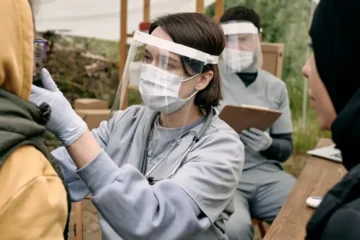Clinical Pharmacists
Clinical pharmacists are trained to identify and manage drug interactions
Pharmacotherapy Expertise Drug Interactions Clinical pharmacists are trained to identify and manage drug interactions that may occur when patients are taking multiple medications simultaneously. They assess the risk of potential interactions, adjust medication regimens accordingly, and monitor patients for adverse effects. Adverse Effects Management When patients experience adverse drug reactions Read more…










